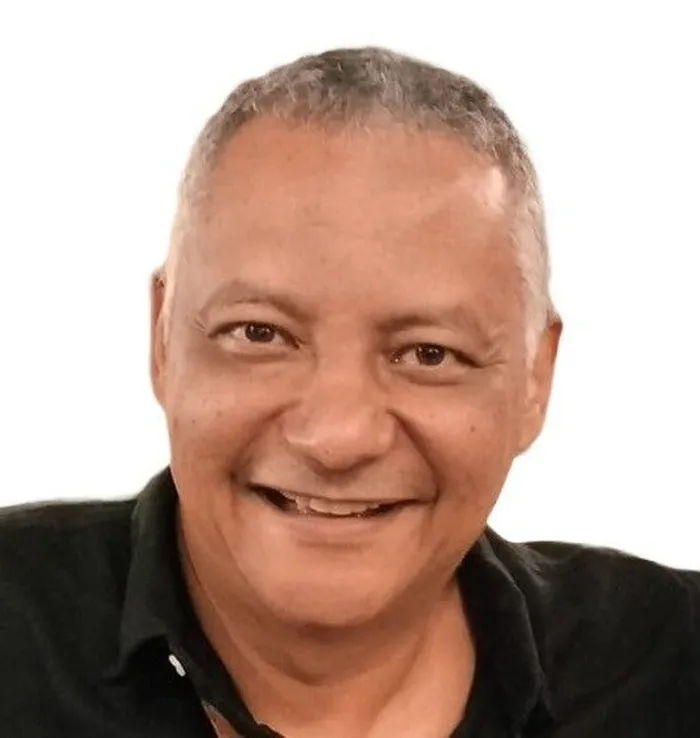
Ashley Green-Thompson runs an organisation that supports social justice action.
Image: Supplied
My revolutionary friend, whom I love dearly, proposes three avenues to achieve change.
The first is to influence the narrative so that the ideas dominating public discourse are positive about the change that is needed. So media, politicians, religious leaders and other authorities need to appreciate their influence on how people think and behave, and adjust what they say.
The second avenue, my revolutionary friend suggests, is to install a strong leader (a dictator?) who is not afraid to make difficult decisions and is not beholden to others to keep their position. The proviso is that there is a fail-safe mechanism to remove them from office once the change has been achieved. No lifetime presidency.
The third caught me unawares, as my revolutionary friend is a democrat committed to human rights. My friend argued that a strategic act of violence that impacts the individual in authority would help focus that individual’s mind on the consequences of their bad behaviour, or corruption, or failure to deliver on the promises they made. Consequence is key to accountability, and I think you’d be hard-pressed to find a right-thinking person who hasn’t at some point thought of a strategic act of violence to shake up their local or national politician or civil servant.
These somewhat left-field ideas emerged - half jokingly - during conversations with comrades in KZN this week about how ordinary communities can effect change to a system that seems impervious to the suffering it causes. The endless legal protests seem unable to move the monolith, so at what point do we try action paths outside the legal framework?
My thoughts turned to Nelson Mandela, Anton Lembede and their comrades when they first disrupted the tired, conventional political strategies of the African National Congress in the 1940s. Their formation of the Youth League opened the way for a more radical approach to seeking change than the representational appeal to power for enfranchisement, and began a long history of demanding rather than requesting change. When even that approach yielded little progress, Mandela and his cohort embarked on the armed struggle through the formation of the real Umkhonto weSizwe in the 1960s.
The name Rolihlala means troublemaker, the one who disrupts, and I believe deeply in the transformative power of disrupting the assumptions and mindsets that become our comfort zones, especially as we become older, more financially comfortable, and much more averse to the risks of physical or financial harm to our persons.
Occasionally, social eruptions signal hope that the elite-driven and repressive politics that define our time can be challenged.
In Kenya, professionals my age hailed the rebellion their children were leading in the streets. The Arab Spring uprisings, riots in South Africa and Swaziland, coups d’état and rejection of mainstream politics in West Africa all disrupted the business-as-usual ways of expressing discontent.
Yet the system always regroups, and before long, it’s business as usual again. In SA, Fees Must Fall was a radical disruption of representational politics, yet students still face challenges in accessing education.
NGOs are beating their chests with angst-ridden but eloquent reflections on shifting the power, decolonisation and locally-led approaches to change. And yet we still have to manage our deep frustration at our failure to change a rotten system that marginalises so many.
This week, I don’t have a simple call to action, but pose the question of how we find creative and effective strategies to deal with the intransigence of elites who maintain the system.
Are we prepared to consider resistance that is outside the bounds of the law? Many on the margins believe the law is a tool of the elites to maintain the current order. Or is there enough space within South Africa’s constitutional provisions to register real protest that results in change? Israel and the USA have disregarded the rule of global law and happily continue the genocide. What options exist to force a shift?
Ukraine and Russia, the warring factions in Sudan, the military juntas in Myanmar and elsewhere – what can ordinary global citizens do to force change? We are compelled to ask these questions, and even if we don’t find the answer, the search confirms that we are still human. Because when we give up and give in to the inevitability of rotten politics, we relinquish our humanity and those things that define us – our ability to reason, to care, and to make choices about how we want to live.
Related Topics: